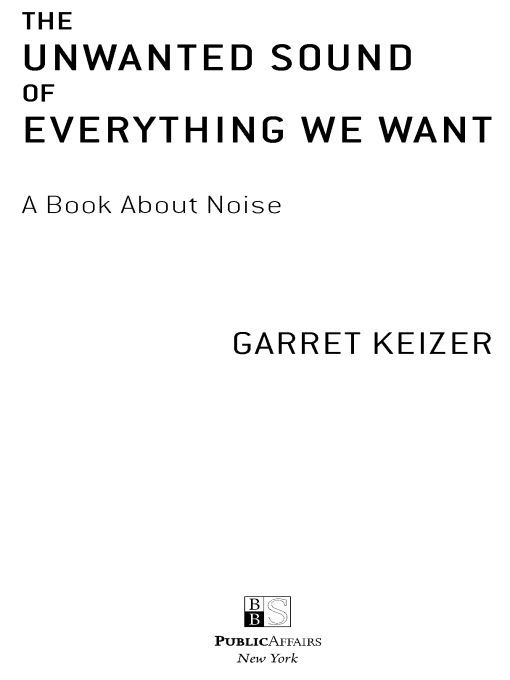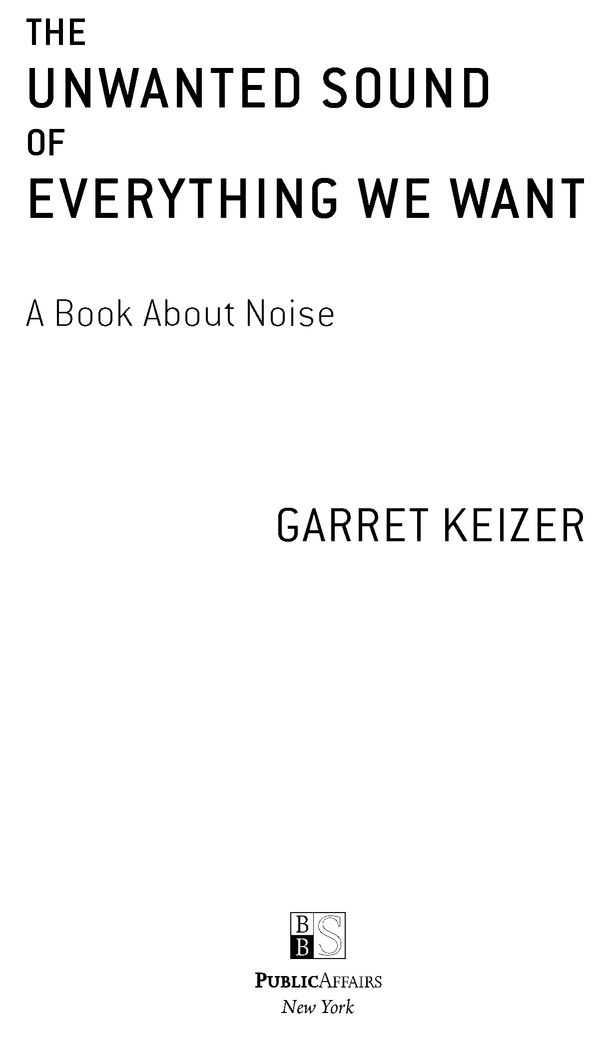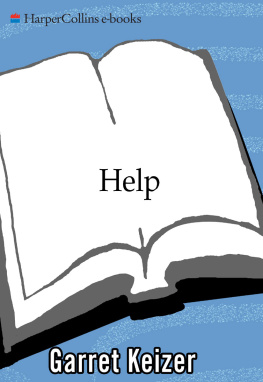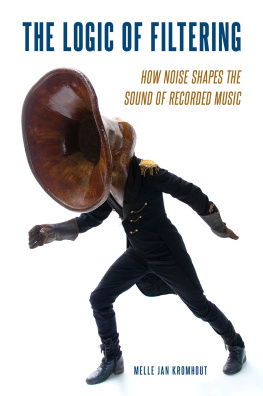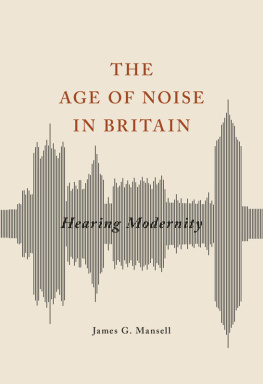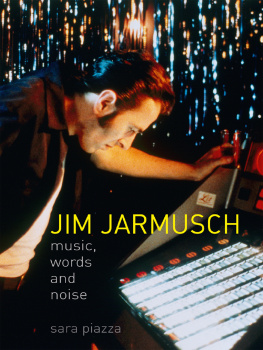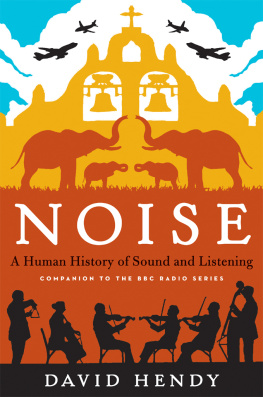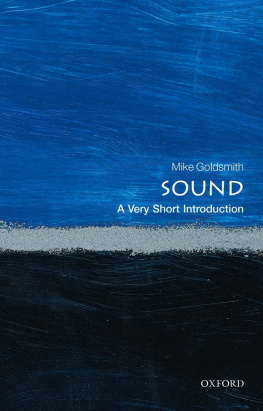Table of Contents
ALSO BY GARRET KEIZER
Help
The Enigma of Anger
God of Beer
A Dresser of Sycamore Trees
No Place But Here
For Kathy and Sarah
PART I
What We Talk About When We Talk About Noise: A Basic Introduction
CHAPTER 1
Noise Is Interested in You
You may not be interested in war,
but war is interested in you.
ATTRIBUTED TO LEON TROTSKY
Noise is not the most important problem in the world. Compared to the disasters of famine, war, and global climate change, the existence of unwanted sound hardly counts as a problem at all. It rarely emerges as a public issue in countries struggling with the worst forms of poverty and violence. So far as I am aware, there is no Society for the Suppression of Unnecessary Noise in the cities and villages of Afghanistan and the Congo.
Even among societies with levels of political stability and industrial commotion sufficient to raise an organized cry for quiet, that cry can quickly be silenced by a crisis. The so-called Roaring Twenties included a number of initiatives in both the United States and Europe to address the Jazz Age roar of motorcars and radios. But with the Great Depression, followed by the Second World War, the issue of noise all but vanished from the public agenda. Established in 1929, the New York Noise Abatement Commission was dissolved in 1932, by some accounts one of the worst years of the Depression. Noise did not again become a prominent issue, even in New York, until the 1960s.
Noise might be called a small or a weak issue, in some cases a fussy issue, which may be what certain individuals had in mind when they asked me why on earth I wanted to write a book about it. My father asked me when he first heard of my plans, as did several of my friends and acquaintances. Why noise?
It was a good question, and this was my best answer: I chose to write a book about noise because it is so easily dismissed as a small issue.
And because in that dismissal I believe we can find a key for understanding many of the big issues.
Noise reminds me of a Norse myth in which the god Thor is invited to wrestle with a giant kings decrepit old foster mother. Though Thor is one of the mightiest of the Norse gods, he is unable to gain any advantage over the crone. He cannot lift her, throw her, best her in any way. Only later is he told that he was wrestling with Old Age itself. Noise is a lot like Thors mysterious opponent. It appears lightweight and even frail at first glance, but once you try to pick it up, you discover that you are trying to heft the whole world.
A WEAK ISSUE BECAUSE IT AFFECTS THE WEAK
To say that noise is a relatively weak issue because it is less momentous than world hunger or global climate change is to make an incomplete statement. Noise is a weak issue also because most of those it affects are perceived, and very often dismissed, as weak. The ones who dismiss them, in addition to being powerful, are often the ones making the noise.
In using the word weak I am not referring to personal capabilities, to someones IQ score or muscle mass, though these factors may come into play. I am thinking rather of a persons social standing and political power. Make a list of the people most likely to be affected by loud noises (though not all noise is loud), either because of their greater vulnerability to the effects of loud sound or because of their greater likelihood of being exposed to it, and you come up with a set of members whose only common features are their humanity and their lack of clout. Your list will include children (some of whom, according to the World Health Organization, receive more noise at school than workers from an 8-hour work day at a factory), the elderly (whose ability to discriminate spoken speech from background noise is generally less than that of younger contemporaries), the physically ill (cancer patients undergoing chemotherapy, for example, are often more sensitive to noise), racial minorities (blacks in the United States are twice as likely, and Hispanics 1.5 times as likely, as whites to live in homes with noise problems), neurological minorities (certain types of sound are especially oppressive to people with autism), the poor (more likely than their affluent fellow citizens to live next to train tracks, highways, airports), laborers (whose political weakness has recently been manifested in weakened occupational safety standards), prisoners (noise, like rape, being one of the unofficial punishments of incarceration), members of the Armed Forces (roughly one in four soldiers returning from Iraq has a service-related hearing loss)or simply a human being of any description who happens to have less sound-emitting equipment than the person living next to her (who might for his part have car speakers literally able to kill fish) and no feasible way to move.
Consider a toddler holding a toy capable of emitting 117 decibels Consider an elderly person living in a noisy tenement, a patient in the notoriously noisy wards of certain hospitals, a studious undergraduate living in a typical college dorm; then consider the likelihood that any one of them could improve his or her situation by complaining. What they rightly perceive as helplessness, some others around them will readily perceive as entitlement. A person who says My noise is my right basically means Your ear is my hole.
For about the past year and a half Ive been corresponding online with men and women whove gotten that messageas the saying goesloud and clear. With the help of a former student of mine, I set up noisestories.com, which invites its visitors to submit a firsthand experience of noise. I have received stories from people as close as fifty miles away and as far as New Zealand, stories from farmers, bartenders, physicists, zookeepers, bus drivers, performance artists (in fact, one from a woman who is both a bus driver and a performance artist), and several from people who are possibly out of their minds. Some of my correspondents are dealing with industrial noise at work or in their neighborhoods, others with noisy entertainment venues, and many with a noisy individual or family living next door. Most seem glad that someone is interested in their predicament. A few have mistaken my credentials and asked if I could make the noises stop.
One of the recent stories Ive received came from a stay-at-home mother in Texas whose name Ive chosen to change out of regard for her safety. Kai-ying Keller was born in China and speaks a slightly accented English. She is married to an American she met in China but is not a U.S. citizen herself. Two years ago her neighbor, then on friendly terms with her family, built a swimming pool and located the pump and filtration system near the border of Kellers property. The pump is audible inside Kellers house. A year ago Keller gave birth to a daughter. She is afraid to take her baby into the backyard because of the noise and because her neighbors two large, aggressive dogs are often butting their heads against the dividing fence, a noise that scares my baby to cry. Keller has spoken to her neighbor about the pump noise and gotten nowhere. She has spoken to the police and to her town government and gotten nowhere. Like many of my other correspondents, she has sent me a great sheaf of letters and documents. She has been told that the city noise ordinance lists 85 dB as the maximum allowable threshold and that since the motor noise measures only 76.1 dB there is nothing that can be doneeven though the city ordinance also prohibits any noise of such character, intensity and continued duration, which substantially interferes with comfortable enjoyment of private homes by persons of ordinary sensibilities.

